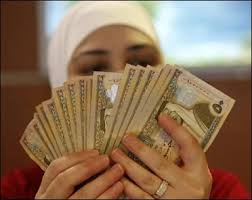Kochi, Aug 18: The Kerala government has got a go-ahead from the Reserve Bank of India to launch a financial institution following the principles of Islamic finance.
Cheraman Financial Services Limited (CFSL) will be floated by Kerala State Industrial Development Corporation to function as a non-banking finance company (NBFC). A formal announcement on CFSL, the latest incarnation of Al Baraka Financial Services, was made on Saturday.
Industries minister PK Kunhalikutty and CFSL chairman P Mohamad Ali told reporters here that the firm would function as a non-banking finance company with an authorised capital of Rs 1,000 crore.
CFSL has already received clearances from the RBI, the Securities and Exchanges Board of India ( SEBI) and the wakf board, the chairman said.
The Kerala State Industrial Development Corporation ( KSIDC) will be the single largest shareholder in the company, holding 11% shares. The other individual shareholders can hold a maximum of 9% shares.
Counting on the state's traditional Gulf links, the previous government had hoped to raise Rs 40,000 crore. The Sharia-compliant CFSL will launch road shows in various cities of India and the Gulf countries from next month
The body will desist from charging interest on loans or give interests on deposits. It will target sectors like infrastructure, services and manufacturing sectors and keep off taboo areas including liquor, tobacco and gambling or speculation. Financing start-up projects is one of its pilot programmes.
The firm will float an alternative investment fund under the banner of Cheraman Fund, with a corpus of Rs 250 crore. The fund will focus on manufacturing and service sectors, mainly in Kerala.
Initially, the fund will raise about Rs 50 crore and one of the early projects to be taken up will be to provide support to startup schemes, managing director APM Mohammed Hanish said.




Comments
Assalamu alaikum. Hi I got stuck in a private bank borrowing 13 lakhs for home loan. I need to get relief from that paying interest. Because I need to pay 17 lakhs as interest in 15 years. Please help me in this and do the needful.
Looking for Islamic business loans and opening account in the same
Please give me details, how I can open my account in Islamic bank
Please give me details, how I can open my account in Islamic bank
I would
I would like to take money from Islamic banking for doing business without interest.As interest is haram in Islam.
PLEASE Give me the RIGHT GUIDANCE.
I want business loan...
I am very happy to know that R.B.I approves an Islamic Bank.
Sir I completed my diploma in civil engineering and I want to continue my higher studies. So I want to know the procedure to get education loan from your bank and shariah bonding while taking loan.
I want to starts buisness in kerala. Can i get the loan if possible what is the procedure...?
I want to starts buisness in kerala , can i get loan .If possible what is the procedure?
SUBHANALLAH. DEAR SIR I WANT TO OPEN MY ACCOUNT IN ISLAMIC BANK IN INDIA, SIR CAN YOU GIVE ME LOAN TO EXPAND MY BUSINESS
Assalam alaikum,
Well I need financial help to boost my business in Lucknow. We are in FnB segment of hospitality industry.I don't want to get involved in anything which have to deal with interest.moreover I hire my staff from our community only more preferably.
My no & email is mention below.
9794492760
[email protected]
Assalamu Walaikum Rahmatullah,
Sir I want to open an account in Islamic Bank in India please sent me details to my mail.
Thank & Regards.
b8
Sir, It is nice to know that an Islamic Bank has been approved by RBI. I wish that its branches should be opened in Jammu and Kashmir. So that we will prevent ourselves from taking interests and help the persons who need loans to run their business.
Pagination
Add new comment